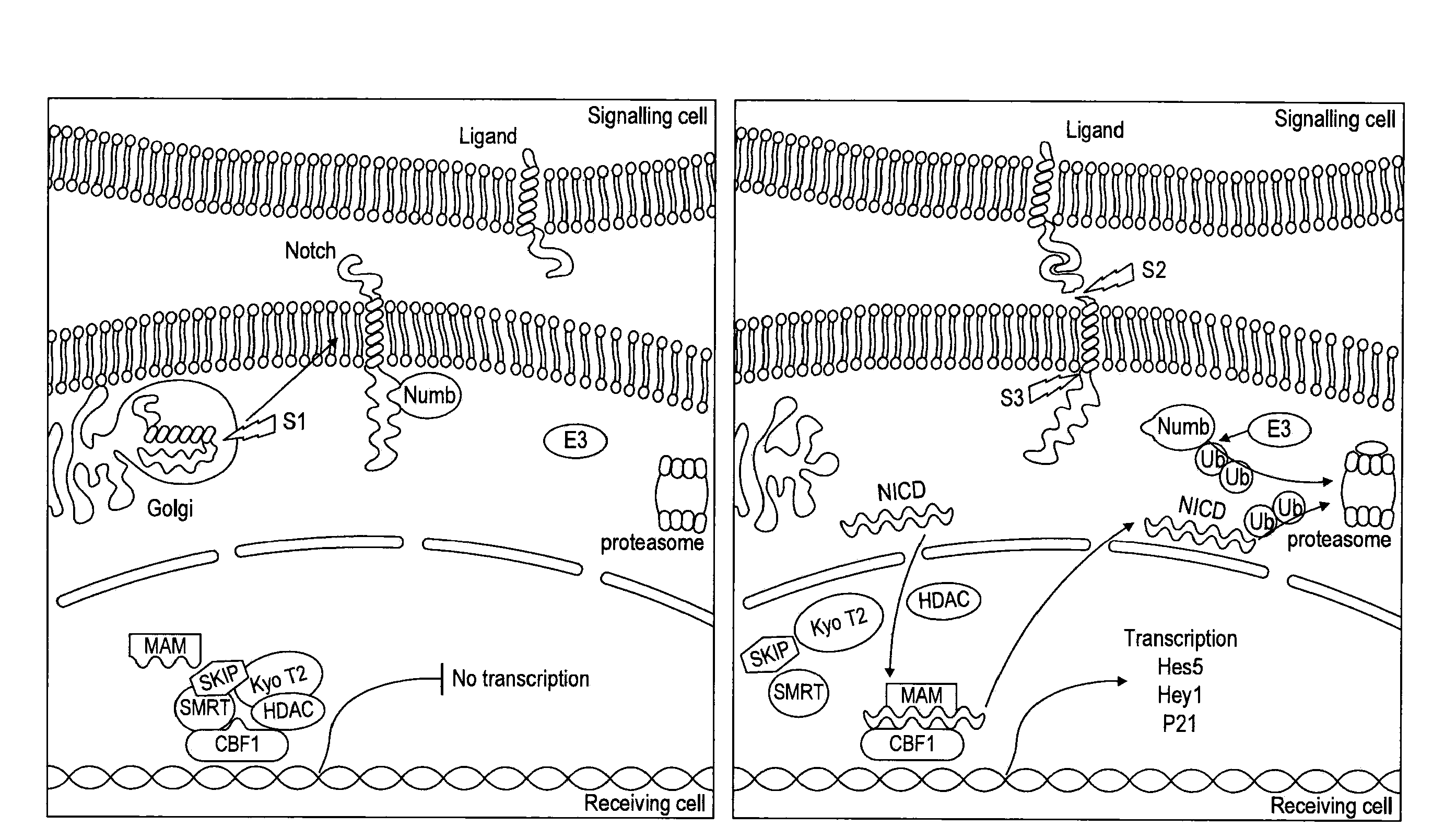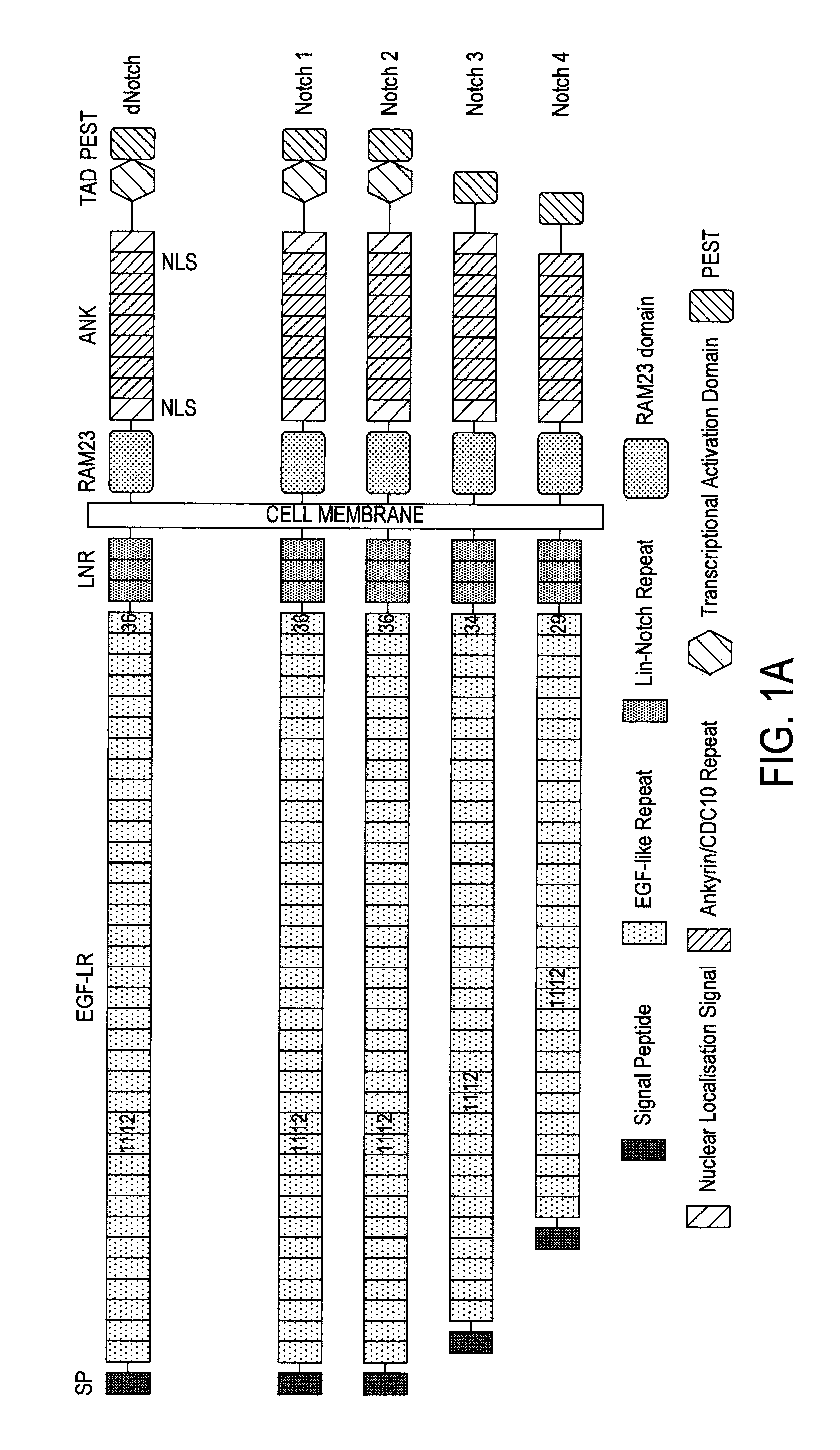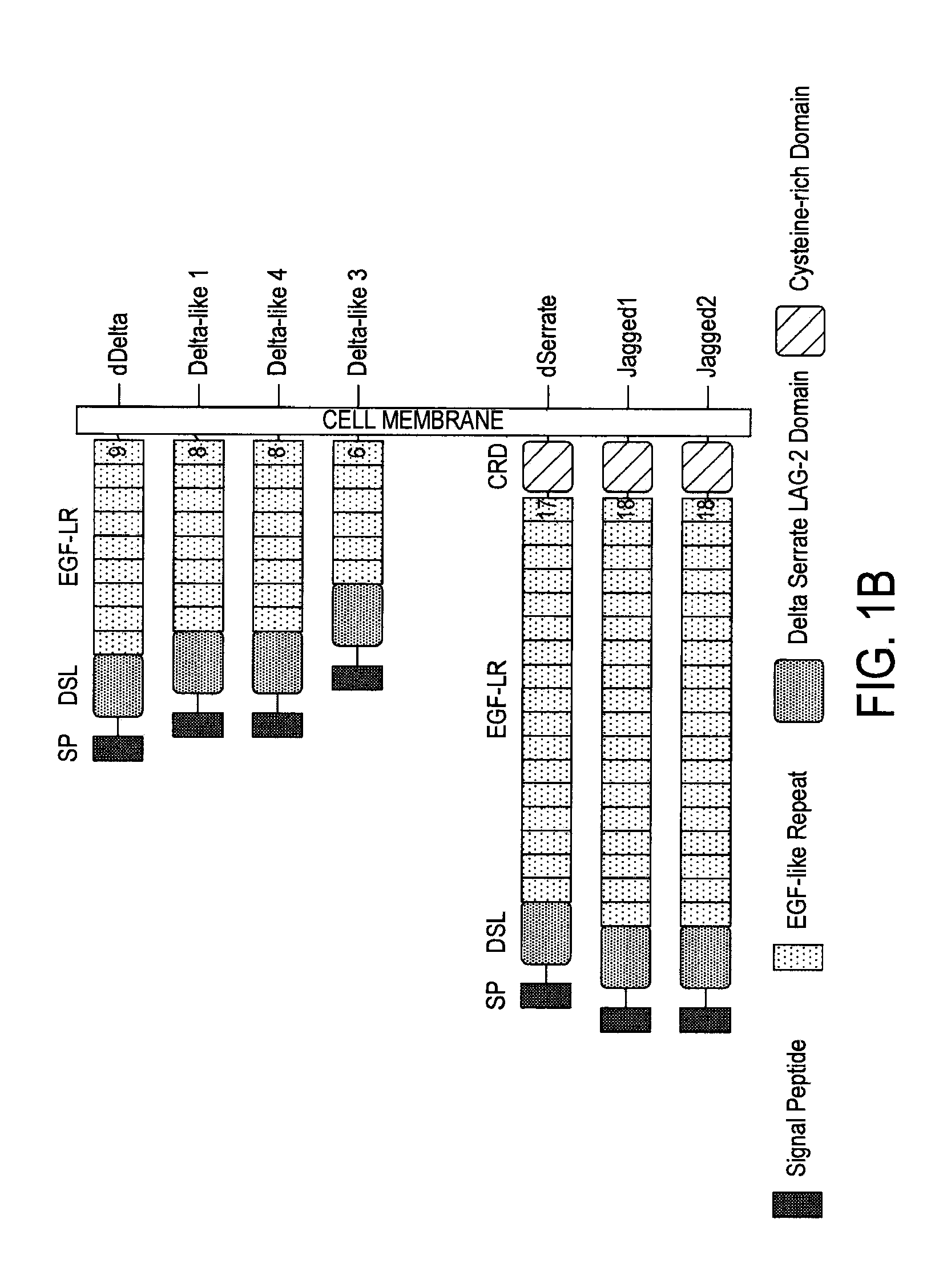Methods of treating cancer using notch pathway inhibitors
a notch pathway inhibitor and cancer technology, applied in the field of cancer, can solve the problems that the evidence of a substantial involvement of notch in human tumors has remained elusive, and achieve the effect of reducing the expression of numbness and increasing notch signaling
- Summary
- Abstract
- Description
- Claims
- Application Information
AI Technical Summary
Benefits of technology
Problems solved by technology
Method used
Image
Examples
example 1
Detection of Notch Components in Normal and Breast Cancer Human Samples
[0079]Experiments were performed in order to elucidate the nature of Notch signaling in human breast cancer. Two normal (A and B) and twenty breast cancer samples (Group C, D, E, F, G) were obtained for Notch expression analysis (Table 2.1). All samples were accompanied by pathology reports. Breast cancer samples were categorized into five groups (Table 1, group C, D, E, F, G) based on the expression of ER, PR, erbB2, EGFR in the tumors, which correlates with prognosis and clinical outcome. In addition, within each group the tumors were of various types (lobular or ductal) and grades (I, II, III). The cells of grade I tumors are usually well-differentiated and most of the times have normal structures and functions. A grade II breast tumor has cells that are starting to look abnormal. On the other hand, the cells of grade III breast tumor are usually poorly differentiated or undifferentiated, have no specialized s...
example 2
Detection of Notch Components in Normal and Breast Cancer Cell Lines
[0088]To support the Western blot and immunohistochemistry results from the breast cancer samples, Western blot analysis on three normal (MCF-10A, MTSV1-7 HB4A) and eight tumorigenic (Hs578T, MDA-MB468, MCF7, ZR75T, CAL51, MDA-MB231, SK-BR3 and PMC42) human breast epithelial cell lines was performed. The results were consistent with those obtained from tissue samples.
[0089]Western blots were probed with Numb, cleaved Notch (NICD), Notch1, Notch 3, Jagged1, Jagged2, Delta-like4, E-Cadherin, Hey1 and Hes5 primary antibodies. Numb was downregulated in all nine cancer cell lines compared with the three normal lines. In contrast, the activated form of Notch was upregulated in all nine lines. Truncated forms of the activated forms on Notch were observed in five of the tumor cell lines. In addition, Hey2 and Hes5 expression was upregulated in all breast cancer cells demonstrating that the accumulation of NICD correlates wi...
example 3
Inhibiting Notch Signaling Reverts the Transformed Phenotype of the Human Breast Cancer Cell Lines MDA-B231 and MCF7
[0093]The results from breast cancer patients and cell lines analysis show that Notch signaling was activated in all twenty human breast cancer samples and eight tumorigenic mammary epithelial cell lines analyzed. To determine if the increase in Notch signaling is involved in tumor development, Notch signaling was inhibited in two different breast cancer cell lines by overexpressing Numb. The two cell lines chosen for this experiment were MDA-MB-231 and MCF7. The MDA-MB231 cell line is derived from an adenocarcinoma that does not express ER, PR, EGFR, and E-Cadherin but strongly expresses erbB2 (see Table 2). It is also reported to be highly metastatic when injected into nude mice. In contrast, the MCF7 cell line is ER, PR, E-Cadherin positive and erbB2, EGFR negative (see Table 2.1) and is also derived from adenocarcinoma, but does not metastasize when injected into n...
PUM
| Property | Measurement | Unit |
|---|---|---|
| pH | aaaaa | aaaaa |
| time | aaaaa | aaaaa |
| length | aaaaa | aaaaa |
Abstract
Description
Claims
Application Information
 Login to View More
Login to View More - R&D
- Intellectual Property
- Life Sciences
- Materials
- Tech Scout
- Unparalleled Data Quality
- Higher Quality Content
- 60% Fewer Hallucinations
Browse by: Latest US Patents, China's latest patents, Technical Efficacy Thesaurus, Application Domain, Technology Topic, Popular Technical Reports.
© 2025 PatSnap. All rights reserved.Legal|Privacy policy|Modern Slavery Act Transparency Statement|Sitemap|About US| Contact US: help@patsnap.com



